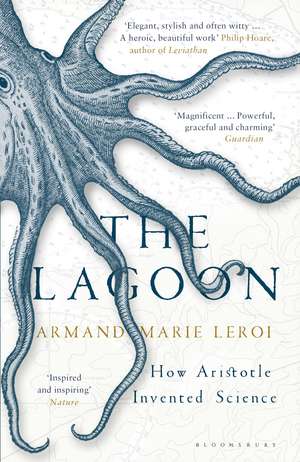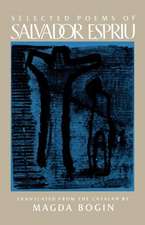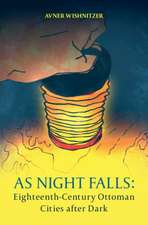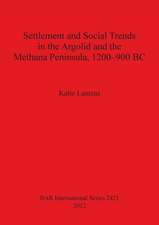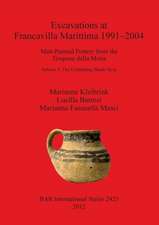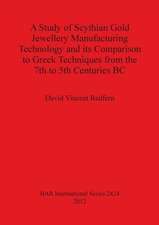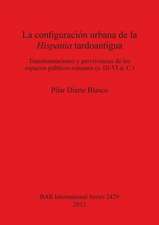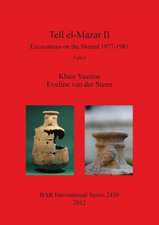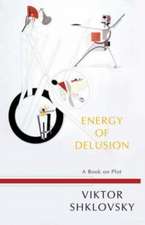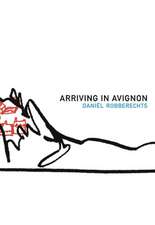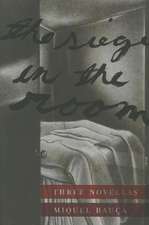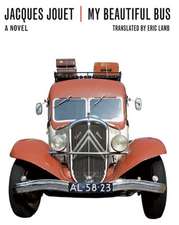The Lagoon: How Aristotle Invented Science
Autor Armand Marie Leroien Limba Engleză Paperback – 26 aug 2015
| Toate formatele și edițiile | Preț | Express |
|---|---|---|
| Paperback (2) | 65.23 lei 3-5 săpt. | |
| Bloomsbury Publishing – 26 aug 2015 | 65.23 lei 3-5 săpt. | |
| Penguin Books – 7 dec 2015 | 145.34 lei 3-5 săpt. |
Preț: 65.23 lei
Preț vechi: 83.91 lei
-22% Nou
Puncte Express: 98
Preț estimativ în valută:
12.48€ • 13.03$ • 10.33£
12.48€ • 13.03$ • 10.33£
Carte disponibilă
Livrare economică 14-28 martie
Preluare comenzi: 021 569.72.76
Specificații
ISBN-13: 9781408836224
ISBN-10: 140883622X
Pagini: 512
Dimensiuni: 129 x 198 x 35 mm
Greutate: 0.4 kg
Editura: Bloomsbury Publishing
Colecția Bloomsbury Paperbacks
Locul publicării:London, United Kingdom
ISBN-10: 140883622X
Pagini: 512
Dimensiuni: 129 x 198 x 35 mm
Greutate: 0.4 kg
Editura: Bloomsbury Publishing
Colecția Bloomsbury Paperbacks
Locul publicării:London, United Kingdom
Caracteristici
Mixes the appeal of books about the classical world, such as Stephen Greenblatt's The Swerve, those on natural and scientific history, including The Naming of Names by Anna Pavord and Lisa Jardine's The Curious Life of Robert Hooke and natural history writing like that of Robert Macfarlane
Notă biografică
Armand Marie Leroi is Professor of Evolutionary Developmental Biology at Imperial College London. He studied in Halifax, Canada, and Irvine, CA, and did post-doctoral work at the Albert Einstein College of Medicine. As well as many technical papers, he is the author of Mutants: On the Form, Variety and Errors of the Human Body (2003), which has been translated into nine languages and won the Guardian First Book Award. He lives in London.
Recenzii
In elegant, stylish and often witty prose, he probes the near-legendary, almost primeval lagoon which inspired the ancient Greek's Historia animalium and animates it anew with his own incisive observations ... The Lagoon is a heroic, beautiful work in its own right, an enquiring odyssey into unknown nature, and the known world which science has created out of it
Leroi clearly adores Greece and he uses his detailed local knowledge to splendid effect, evocatively re-creating the experiences of the peripatetic philosopher . Leroi is absolutely right to say that even those sections of Aristotle's work we no longer believe to be correct have affected the knowledge that we have today
In this lush, epic and hugely enjoyable book, biologist Armand Marie Leroi explores the idea that it was another ancient Greek giant whose shoulders we may all stand upon . Leroi is a beautiful writer and it's been too long, a decade, since his last outstanding book
Brilliant . Not just a charismatic book, but one that places Aristotle in a freshly Aegean context . Above all, Leroi shows, science today trawls through reams of data for patterns and explanations, in precisely Aristotle's manner
Leroi takes us through Aristotle's work, finding hints of modern thinking everywhere . The Lagoon bubbles with enthusiasm for its subject, making an absolutely gripping read out of what might have seemed the most unlikely material
Compelling, sometimes contentious, and always thought-provoking . It celebrates what is most admirable in the Aristotelian tradition: its appreciation of what is actually there
How Aristotle nearly beat Darwin to a theory of evolution. Brilliant
In the History of Animals "[Aristotle] speaks of the reproduction of lice, the mating habits of herons, the sexual incontinence of girls, the stomachs of snails, the sensitivity of starfish, the dumbness of the deaf, the flatulence of elephants and the structure of the human heart: his book contains 130,000 words and 9,000 empirical claims". Leroi's own uncompromising investigation gives us a flavour of his subject's indefatigable explorations . Leroi does not upstage Aristotle's descriptions with modern anatomical illustrations, though his attractively illustrated discussions draw on much scholarship that has been expended on editing and interpreting Aristotle's ideas about nature . Leroi's scholarship is impeccable and consistently generous . Only an expert biologist with broad cultural sympathies and a deep feeling for history could have created such a compelling reappraisal of Aristotle's place in the history of science. What's in a name, indeed; in marshalling the facts and ideas that support Aristotle's scientific credentials in exuberant detail, Leroi must be accounted the king
Beautifully written
Remarkable
Leroi clearly adores Greece and he uses his detailed local knowledge to splendid effect, evocatively re-creating the experiences of the peripatetic philosopher . Leroi is absolutely right to say that even those sections of Aristotle's work we no longer believe to be correct have affected the knowledge that we have today
In this lush, epic and hugely enjoyable book, biologist Armand Marie Leroi explores the idea that it was another ancient Greek giant whose shoulders we may all stand upon . Leroi is a beautiful writer and it's been too long, a decade, since his last outstanding book
Brilliant . Not just a charismatic book, but one that places Aristotle in a freshly Aegean context . Above all, Leroi shows, science today trawls through reams of data for patterns and explanations, in precisely Aristotle's manner
Leroi takes us through Aristotle's work, finding hints of modern thinking everywhere . The Lagoon bubbles with enthusiasm for its subject, making an absolutely gripping read out of what might have seemed the most unlikely material
Compelling, sometimes contentious, and always thought-provoking . It celebrates what is most admirable in the Aristotelian tradition: its appreciation of what is actually there
How Aristotle nearly beat Darwin to a theory of evolution. Brilliant
In the History of Animals "[Aristotle] speaks of the reproduction of lice, the mating habits of herons, the sexual incontinence of girls, the stomachs of snails, the sensitivity of starfish, the dumbness of the deaf, the flatulence of elephants and the structure of the human heart: his book contains 130,000 words and 9,000 empirical claims". Leroi's own uncompromising investigation gives us a flavour of his subject's indefatigable explorations . Leroi does not upstage Aristotle's descriptions with modern anatomical illustrations, though his attractively illustrated discussions draw on much scholarship that has been expended on editing and interpreting Aristotle's ideas about nature . Leroi's scholarship is impeccable and consistently generous . Only an expert biologist with broad cultural sympathies and a deep feeling for history could have created such a compelling reappraisal of Aristotle's place in the history of science. What's in a name, indeed; in marshalling the facts and ideas that support Aristotle's scientific credentials in exuberant detail, Leroi must be accounted the king
Beautifully written
Remarkable
